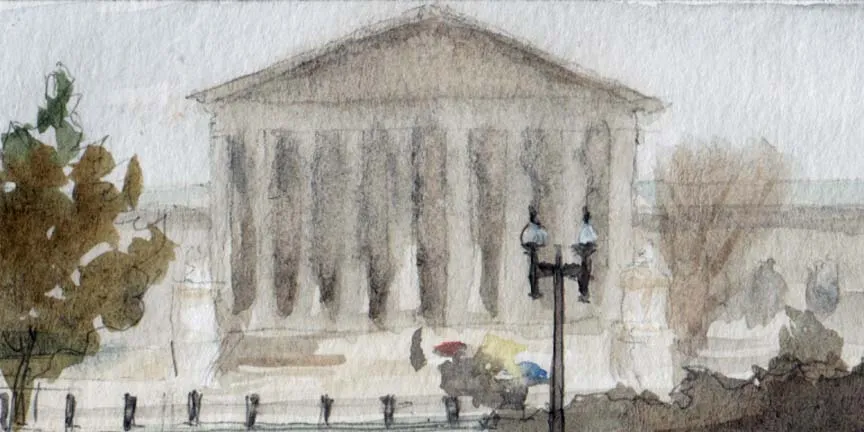Trump returns to Supreme Court, asks justices to intervene in dispute over financial records

on Nov 15, 2019 at 4:07 pm

Yesterday lawyers for President Donald Trump asked the Supreme Court to review a decision by the U.S. Court of Appeals for the 2nd Circuit ordering the president to provide New York prosecutors with his tax returns. Those lawyers were back at the court today, this time asking the justices to temporarily put on hold a decision by the U.S. Court of Appeals for the District of Columbia Circuit that upheld a subpoena for Trump’s financial records issued by House Democrats to Trump’s accounting firm, Mazars.
The subpoena at the center of the dispute came from the House Committee on Oversight and Reform, which wants the financial records as part of its investigation into the adequacy of current government ethics laws. The president filed this lawsuit to bar Mazars from turning over the documents, arguing that the subpoena goes beyond Congress’ authority because it does not serve a legitimate legislative purpose.
A federal trial court rejected this contention, and in October a divided three-judge panel of the D.C. Circuit upheld that ruling. The court of appeals concluded that the “public record reveals legitimate legislative pursuits,” rather than “an impermissible law-enforcement purpose behind the Committee’s subpoena,” and that the committee is investigating a subject on which it could enact legislation.
Arguing that “everything about this case is unprecedented,” Trump today asked the Supreme Court to block the D.C. Circuit’s ruling from going into effect on November 20 to give his lawyers time to file a petition for review of the lower court’s decision. If the D.C. Circuit’s ruling is allowed to stand, Trump complained in his 32-page filing today, “any committee of Congress can subpoena any personal information from the President; all the committee needs to say is that it’s considering legislation that would force Presidents to disclose that same information. Given the temptation to dig up dirt on political rivals, intrusive subpoenas into personal lives of Presidents will become our new normal in terms of divided government—no matter which party is in power. If every committee chairman is going to have this unbounded authority, this Court should be the one to say so.”
But the Supreme Court won’t be able to review the D.C. Circuit’s decision, Trump continued, unless the D.C. Circuit’s ruling is put on hold while Trump files his petition for review, because the committee plans to enforce the subpoena as soon as the D.C. Circuit’s ruling goes into effect – at which point Mazars will presumably turn over the documents that the committee seeks. “Respect for the office warrants a stay to prevent the President from suffering the irreparable harm of being denied further review because his case had been mooted through no fault of his own,” Trump told the justices. Moreover, Trump added, if his records are turned over, his confidential information may be disclosed, which is “the quintessential type of irreparable harm that cannot be compensated or undone by money damages.” Any harm or inconvenience to the committee from having to wait for the documents, Trump suggested, “pales in comparison” to the harm that Trump will suffer if the committee is allowed to enforce the subpoena.
Trump’s request goes to Chief Justice John Roberts, who handles emergency requests from the D.C. Circuit. Roberts can act on the request alone, but he will almost certainly refer it to the full court.
This post was originally published at Howe on the Court.


